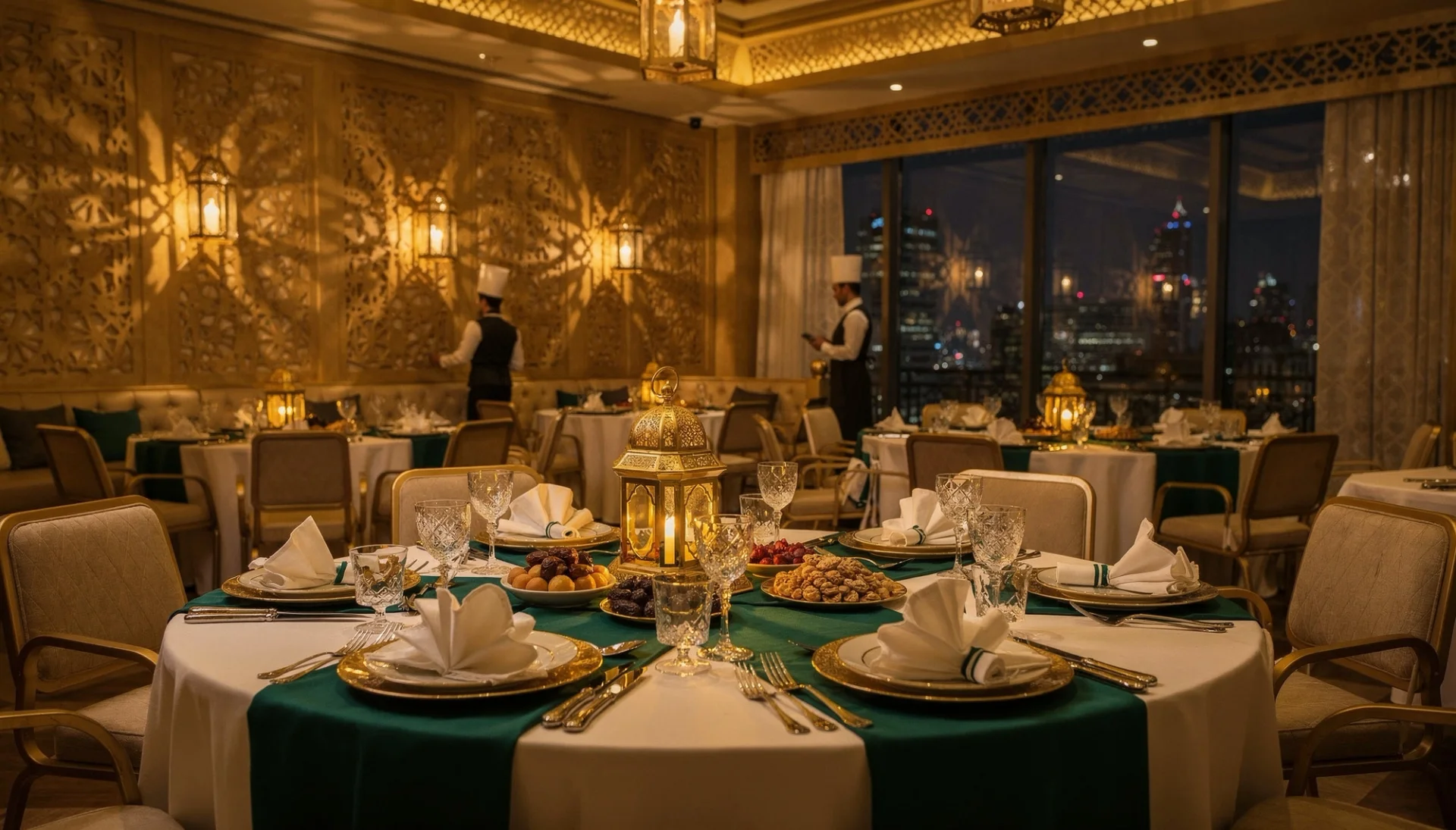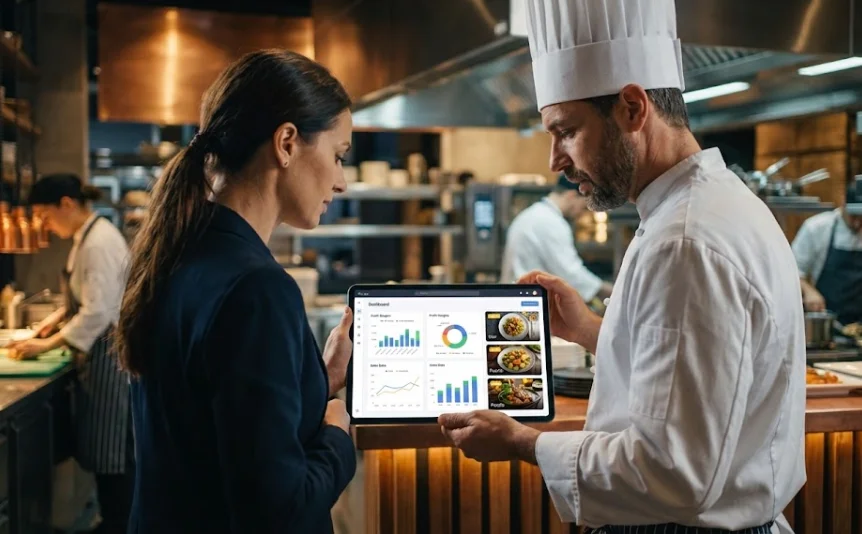
The hospitality industry is always growing. To stay ahead, restaurants and hotels must be quick-witted, listening closely to what guests wants and how new technology can help them create show-stopping experiences. The core of success in hospitality is anticipating what people will love. In this blog, we will explore key trends shaping the hospitality industry in 2025 and discuss how businesses can meet these changing demands.
6 Courses of Hospitality Trends in 2025
Just like a memorable meal, the best guest experiences are built one course at a time. Here are the 6 courses for a full hospitality menu in 2025, each one packed with flavor, and function!
1. Amuse-Bouche: Storytelling
Just like an amuse-bouche sets the tone for the meal with a delightful surprise, storytelling is the first impression in hospitality. It teases the brand’s essence, culture, and values, building anticipation for what’s to come.
People are drawn to stories. Knowing the story of a cuisine or the inspiration for a hotel's architecture gives depth to the hospitality experience. Restaurants are starting to share the story behind their cuisine, whether it's a chef's journey, the cultural background of a certain recipe, or the philosophy behind sourcing ingredients from local farms. Hotels may showcase their historical significance, the artistry of their building, or the unique activities available in their surrounding community.
This narrative approach builds a stronger emotional connection with guests, elevating a simple meal or stay to a memorable experience. It's about creating a sense of belonging and authenticity that resonates.
FineDine’s flexible design capabilities allow restaurants to embed rich descriptions, high-quality images, and even videos within their digital menus. This helps establishments convey the unique story behind their dishes, ingredients, or brand, supporting the storytelling trend.
2. Starter: Social Media
This is where the interaction begins. Social media whets the appetite of your guests, engaging them before they even walk through the door. It’s the shareable, eye-catching beginning that sparks interest.
Social media is where many people discover and interact with businesses. For hospitality businesses, it's a key platform. It's where potential guests discover new destinations, current guests discuss their experiences, and loyal supporters reconnect with their favourite spots. A strong social media presence is essential for restaurants and hotels to showcase their own character and products. It's an opportunity to engage with your audience in an authentic way.
Moreover, guests frequently discuss their dining experiences and hotel stays, essentially serving as informal brand ambassadors. Consider enticing cuisine images, behind-the-scenes glimpses, or delightful bits from hotel life. Engaging with these online communities, reacting to comments, and sharing user-generated content all helps to establish a loyal following. This direct channel of communication is extremely useful in developing a successful hotel business.
3. First Course: Smart Tools
Like a beautifully plated pasta or risotto, tech solutions are foundational. They set the operational rhythm allowing the rest of the experience to unfold seamlessly.
Modern hospitality thrives on technology, artificial intelligence (AI) and the Internet of Things (IoT) being at the forefront of it. AI can personalise recommendations by analysing large volumes of guest data such as past bookings, spending habits, and preferences. Furthermore, AI-powered chatbots handle regular guest enquiries 24/7, allowing staff to focus on more complicated needs. On the other hand, IoT devices, such as smart thermostats and hotel lighting systems, can detect occupancy and save energy.
These innovations significantly improve operational efficiency, allowing employees to focus on providing excellent service.
FineDine’s AI Menu Maker assists establishments in curating and optimizing their menu offerings.
The integrated AI of FineDine Restaurant CRM generates segments based on your business goals, ensuring your successful promotions and campaigns.
4. Main Course: Personalization
The heart of the meal. Personalization is the main dish that satisfies and delights, making guests feel seen, remembered, and valued. This is where loyalty is built.

Guests today expect experiences tailored specifically to them, moving away from a one-size-fits-all approach. This desire for individual attention extends to all aspects of their hospitality experience, particularly dining. Offering options that respond to individual interests and needs is now expected. This includes acknowledging dietary limitations or previous preferences for specific dishes. The goal is to make guests feel recognised and cherished, resulting in a more memorable and enjoyable encounter. Such customisation provides a safe and enjoyable dining experience.
Technology, particularly data analytics, is critical to enabling this level of personalisation since it allows businesses to understand and anticipate guest wants. This results in more meaningful relationships and more loyalty. It also conveys a sense of thoughtfulness, as a true extension of your hospitality. When guests believe their specific demands have been satisfied, they are more likely to return.
FineDine’s digital menus allow guests to see specific dietary options, and allergens, supporting highly customized dish selection.
With FineDine Restaurant CRM you can store customers preferences, making their experience (and dishes!) more personalized.
5. Side Dish: Sustainability
Sustainability is the crisp side salad; refreshing, necessary, and balancing. It shows that you care about more than profits. From reducing waste to sourcing locally, these small, green choices complete the plate and reflect a more conscious approach to hospitality.
Modern guests are conscious of their environmental impactand look for businesses that share their beliefs. Guests are now choosing hotels and restaurants that show a commitment to sustainable practices.
This trend extends beyond just recycling; it involves comprehensive strategies to reduce a business's ecological footprint. Establishments are concentrating on sourcing local and seasonal ingredients to reduce transportation emissions, installing energy-efficient building systems, and decreasing food waste through improved inventory management. Water conservation initiatives, such as linen reuse programs at hotels, are also popular.
The goal is to operate in a way that minimises environmental impact while providing excellent service. Adopting these measures benefits both the environment and your business. It builds trust among guests and enhances your reputation.
FineDine provides digital menus that significantly reduce paper waste, supporting sustainability.
6. Dessert: Wellness and Health
End on a light, nourishing note. Wellness is the mood-boosting dessert of the menu. From air quality and lighting to mindful menus and calming environments, wellness trends leave your guests feeling better than when they arrived.
A growing focus for consumers is overall well-being. This trend influences dining choices and travel destinations. Travellers are now looking for hotels that provide more than just a place to sleep; they want amenities like modern fitness facilities, healthy dining alternatives, spa services, and mindfulness programs. The emergence of "wellness tourism" exemplifies this trend, with people consciously organizing trips focused on health and rejuvenation. On the other hand, restaurants are reacting by producing menus that accommodate to a wide range of dietary needs and interests, emphasizing fresh, wholesome products and even nutritional information.
Businesses that proactively handle their visitors' well-being attract a particular segment of the market that wants to preserve or improve their health while away from home.
FineDine's digital platforms enable guests to easily order in-room amenities, request services, and book spa treatments or other wellness activities directly from their devices.
The future of hospitality is full of exciting possibilities. Adapting to these trends is critical for restaurants and hotels trying to stay ahead of the competition. It's about blending warmth and personal attention with innovative solutions that improve operations and make guest experiences more memorable.
FineDine gives the tools you need to confidently embrace the future of hospitality. What story will your business tell next?


